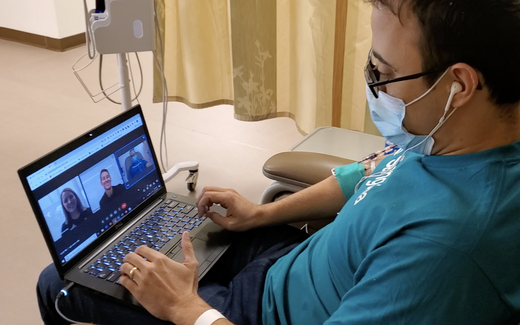Inflammation is a natural process that helps your body fight infections and heal injuries. However, chronic inflammation can be harmful and has been linked to numerous health problems, including poor circulation. If you're experiencing symptoms of inflammation, such as redness, pain, and swelling, it's essential to understand how it can impact your cardiovascular health. Here, we'll explore the connection between inflammation and circulation, and how you can take steps to prevent or manage it.
What is inflammation?
Inflammation is a natural response to injury or infection, triggered by white blood cells and inflammatory chemicals known as cytokines. The inflammatory process functions by releasing these cytokines into the bloodstream to aid in healing injuries and combating infections. However, chronic inflammation arises when there is a persistent immune response to inflammation that extends for weeks, months, or even years. This prolonged response can lead to damage to your body's tissues and organs, including the circulatory system.
How does inflammation affect circulation?
Inflammation can harm the endothelium, which is the layer of cells that line your blood vessels. When the endothelium becomes inflamed, it can't function correctly, leading to a range of circulatory problems. For instance, inflammation can cause blood clots because the body is trying to stop the inflammation from spreading through blood vessels. It can also narrow your arteries' diameter, making it difficult for blood to flow freely throughout your body.
How to manage inflammation and improve circulation
Several lifestyle changes can help reduce inflammation and improve circulation. Here are a few tips to get you started:
- Eat a healthy diet that's rich in anti-inflammatory foods like fruits, vegetables, whole grains, and lean protein.
- Exercise regularly to keep your blood flowing and reduce inflammation.
- Avoid smoking and limit your alcohol consumption.
- Reduce stress levels through meditation, yoga, or other relaxation techniques.
- Maintain a healthy weight to reduce the risk of inflammation and other circulatory problems.
When to seek professional help
If you're experiencing chronic inflammation or circulatory problems, it's essential to consult a healthcare professional. They can perform tests to diagnose underlying conditions like arthritis or cardiovascular disease that may be contributing to your symptoms. Your doctor may also recommend anti-inflammatory medications or other interventions to manage inflammation and improve circulation.
Inflammation can significantly impact your cardiovascular health by damaging your blood vessels and reducing blood flow. Fortunately, you can take steps to prevent or manage inflammation through diet, exercise, and relaxation techniques. If you're experiencing inflammation symptoms that persist or worsen over time, seek professional help to identify underlying conditions and develop a comprehensive treatment plan. By taking care of your cardiovascular health, you can reduce your risk of long-term complications caused by chronic inflammation.





Leave a comment
This site is protected by hCaptcha and the hCaptcha Privacy Policy and Terms of Service apply.